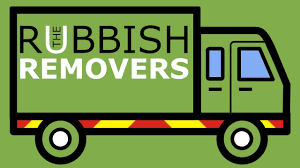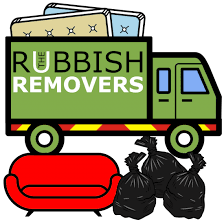Starting a rubbish removal business in Manchester is a fantastic opportunity to dive into an industry that’s both essential and rewarding. Waste management is crucial for maintaining the city’s cleanliness and health, and with the increasing emphasis on sustainability, there’s never been a better time to get started. This guide will walk you through everything you need to know to kickstart your rubbish removal business in Manchester.
Understanding the Market
Before jumping in, it’s essential to understand the market you’re entering. Conduct thorough market research to identify the demand for rubbish removal services in Manchester. Look at your competition, understand their strengths and weaknesses, and identify gaps in the market that your business can fill. Knowing your target audience is also key – are you catering to residential areas, commercial businesses, or both?
Creating a Business Plan
A business plan is your blueprint for success, outlining goals and strategies. Key elements to include are:
- Executive Summary: A brief overview of your business.
- Market Analysis: Insights from your market research.
- Business Structure: Your chosen legal structure.
- Services Offered: Detailed descriptions of the services you’ll provide.
- Marketing Plan: How you plan to attract and retain customers.
- Financial Plan: Estimated startup costs, projected income, and funding needs.
Legal Requirements and Regulations
Navigating the legal landscape is critical. You’ll need to secure the necessary licenses and permits to operate legally in Manchester. This includes proper handling, transportation, and disposal of waste to avoid hefty fines and legal issues.
Choosing a Business Structure
Decide whether you’ll operate as a sole trader or form a limited company. Each has its pros and cons:
- Sole Trader: Easier to set up, full control, but personal liability for debts.
- Limited Company: More complex to establish, potential tax benefits, but limited liability protection.
Consider consulting with a business advisor to determine the best structure for your needs.

Securing Financing
Estimate your startup costs, including equipment, vehicles, permits, marketing, and initial operating expenses. Explore various funding options such as personal savings, bank loans, grants, or investors. A well-prepared business plan can significantly improve your chances of securing financing.
Branding and Marketing Strategy
Develop a memorable business name, logo, and tagline that reflect your services. Your marketing strategy should include:
- Online Presence: A professional website and active social media profiles.
- Local Advertising: Flyers, local newspaper ads, and community events.
- SEO: Increase your website’s search engine ranking by tailoring content to search engine algorithms.
Acquiring Equipment and Vehicles
Invest in reliable equipment and vehicles essential for your operations. This includes rubbish trucks, safety gear, and tools for waste collection. Consider the pros and cons of buying versus leasing equipment. While buying might be costlier upfront, leasing can offer flexibility and lower initial costs.
Setting Up Operations
Establish a base of operations such as an office or depot. Streamline your service process to ensure efficiency. This includes scheduling, routing, waste sorting, and disposal. Implementing a software system can help manage bookings, track jobs, and maintain customer records.
Hiring and Training Staff
Hire qualified staff who share your vision and commitment to excellent service. Offer comprehensive training programs to ensure they understand waste management protocols, safety practices, and customer service standards. Regular training sessions can keep your team updated on the latest industry practices.
Building a Customer Base
Customer acquisition and retention are crucial for business growth. Use a mix of marketing strategies to build your customer base:
- Referrals: Encourage satisfied customers to refer others.
- Promotions: Offer introductory discounts or loyalty programs.
- Online Reviews: Encourage satisfied customers to share their positive experiences online.
Excellent customer service will keep clients coming back and referring your services to others.
Pricing Your Services
Balance competitive pricing with profitable margins. Research your competitors’ rates and adjust accordingly. Offering value through reliable, efficient service can justify higher prices. Transparent pricing and clear communication about costs can build trust with your customers.
Health and Safety Considerations
Health and safety are paramount in the waste management industry. Ensure your team is trained in safe working practices and complies with health and safety regulations. Provide necessary protective gear and conduct regular safety audits to identify and mitigate potential hazards.

Sustainability Practices
Incorporate eco-friendly practices into your operations to attract environmentally conscious customers. This can include recycling programs, using energy-efficient vehicles, and promoting waste reduction initiatives.
Conclusion
Starting a rubbish removal business in Manchester is a promising venture with the right planning and execution. By understanding the market, adhering to legal requirements, and implementing effective business strategies, you can build a successful and sustainable business.
FAQs
How much does it cost to start a rubbish removal business in Manchester?
Startup costs can vary widely, but typically include vehicle purchase or lease, equipment, permits, marketing, and initial operating expenses. On average, you might need anywhere from £10,000 to £50,000 to get started.
What licenses do I need to start a rubbish removal business?
You’ll need a waste carrier license from the Environment Agency, and you must comply with local council regulations regarding waste disposal.
How can I find customers for my rubbish removal business?
Utilize a mix of online marketing, local advertising, and word-of-mouth referrals. Building a strong online presence and encouraging satisfied customers to leave reviews can also help attract new clients.
What are the best marketing strategies for a rubbish removal business?
Effective strategies include search engine optimization (SEO), social media marketing, local advertising, and community engagement. Offering promotions and excellent customer service can also boost your marketing efforts.
How can I make my rubbish removal business more sustainable?
Incorporate recycling programs, use energy-efficient vehicles, and promote waste reduction initiatives. Educating customers about proper waste disposal and offering eco-friendly services can also enhance your sustainability efforts.




